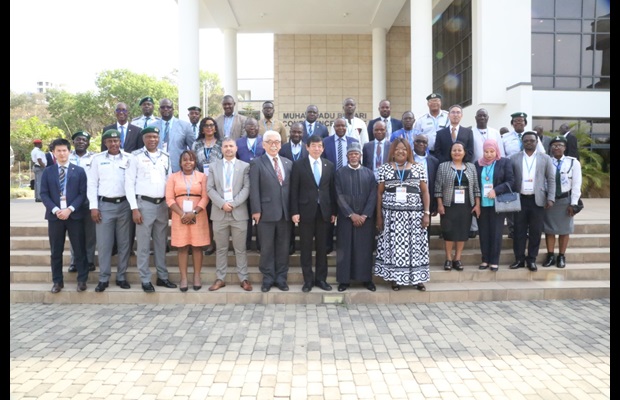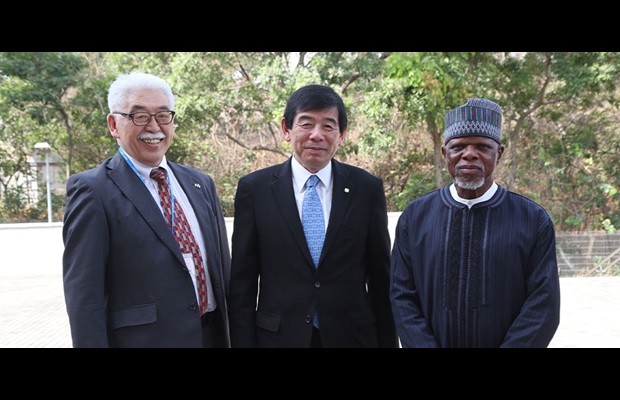
WCO : The role of Customs in disaster relief is raised during a multi-regional workshop organized by the COVID-19 Project
BRUSSLES : From 30 January to 1 February, the Nigeria Customs Service hosted the “World Customs Organization multi-regional workshop on the Role of Customs in disaster relief” in Abuja (Nigeria) under the auspices of the WCO Secretary General, Dr. Kunio Mikuriya, and the Comptroller General, Mr. Hameed Ibrahim Ali. The initiative, organized in cooperation with the WCO COVID-19 Project funded by the Government of Japan, provided an opportunity to delve into the critical role played by Customs administrations in facilitating trade in the context of challenging situations and to make the most of the lessons learned from the COVID-19 pandemic, other infectious diseases and natural disasters to help ensure supply chain continuity.
In his opening remarks, the Secretary General highlighted the long-standing experience of the WCO in disaster relief and the intention of the Organization to keep fostering emergency preparedness to build more resilient and efficient Customs. He also underlined the importance of cooperation with partner International Organizations, other government agencies and stakeholders to provide rapid and legitimate assistance to citizens affected by disasters. The Comptroller General highlighted the timely organization of the workshop, since dealing with some aspects of disaster relief, such as the importation of relief goods, also discussed by the WCO Global Conference “Enabling Customs in Fragile and Conflict-Affected Situations”, hosted by his Administration during the same week. Speaking on behalf of the Government of Japan, the Chargé d’Affaires a.i. of the Embassy of Japan in Nigeria, Mr. Shinozawa Takayuki, commended the activities organized by the COVID-19 Project, such as the development of the Guidelines on disaster management and supply chain continuity, designed to help Customs administrations respond to and recover from disruptive situations.
Delegates of several administrations from the East and Southern Africa, West and Central Africa and North of Africa, Near and Middle East Regions attended the workshop. Coordinated Border Management (CBM) in the context of disaster relief, the use of simulation exercises to foster operational readiness, the difficulties faced by humanitarian actors when importing relief consignments and other technical matters were discussed. Throughout the different sessions, ample space was given to the exchange of best practices, with several participants taking the floor to speak about their national experience in managing emergency situations.
This workshop proved to be particularly helpful in raising awareness about the contribution of Customs in protecting societies and to reaffirm solidarity beyond regional borders, making WCO Members dependable and reactive from both a humanitarian assistance and business continuity perspective.


